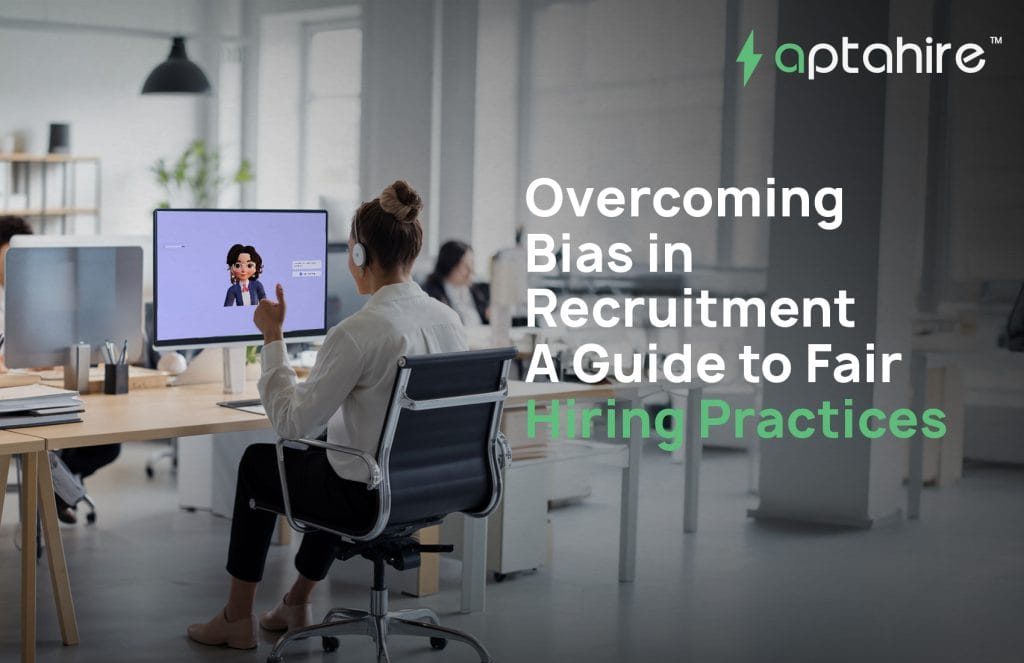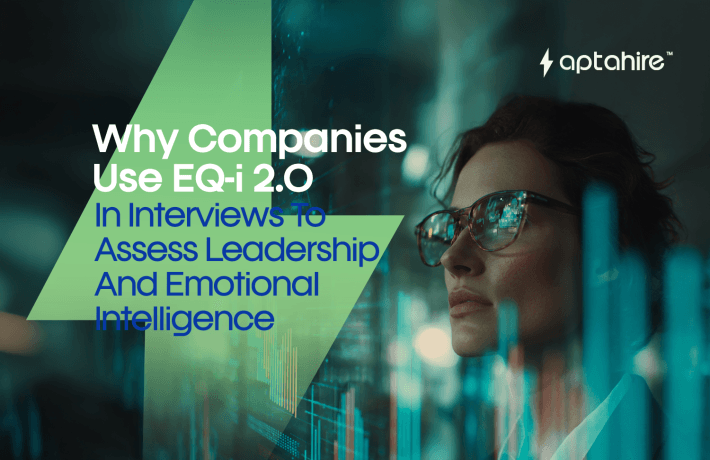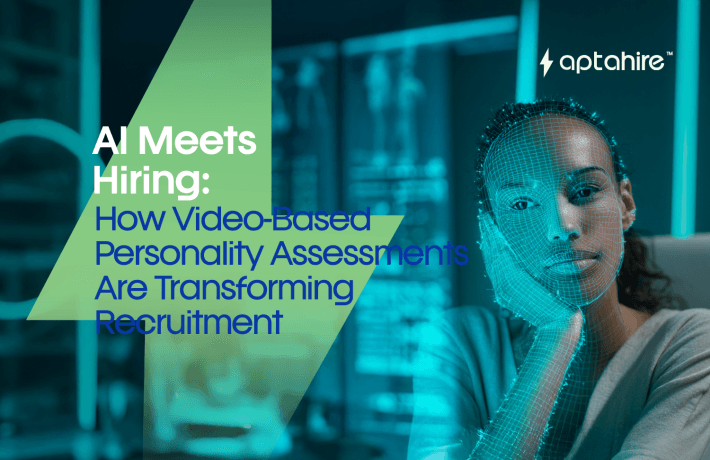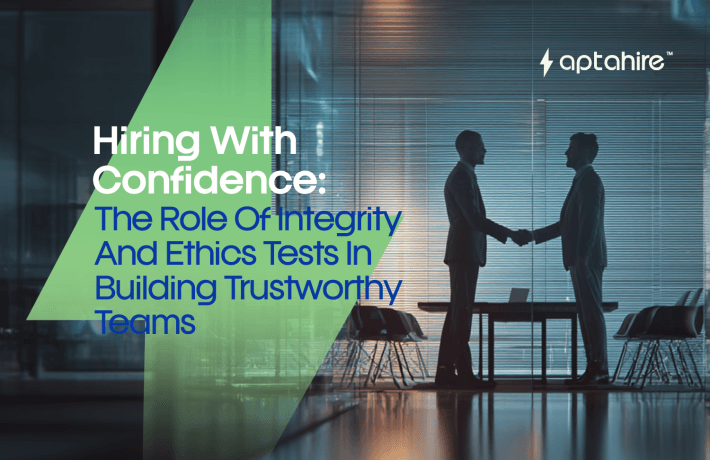Overcoming Bias in Recruitment: A Guide to Fair Hiring Practices

Favoritism exists in many aspects of our life. We’ve always had options, from getting the ball moving on our favorite sports field to selecting the perfect partners for a group endeavor. Let alone our own lives, the Indian film business feeds on nepotism, doesn’t it? The subject of talent has never been raised, but being in a position where you can show off your skills is something that we are all striving for.
Humans have an insatiable need to satisfy their emotional needs. As previously said, it would only make judgments based on raw emotions in a fight or when selecting a partner for a project, rather than deliberately considering the perks and perils of each option. If we applied the same logic to certain aspects of our lives, we’d be surprised at how bad things might get. Consider the Indian cricket team to be made up of youngsters of past stars and players chosen based on emotions while leaving out the genuinely worthy ones who worked tirelessly. Not very lovely, is it? What if we realized that prejudice in selection is not limited to cricket or the film business but occurs all around us?
Look around; you’ll see your colleague-recommended staff playing poker on their systems while others who worked hard to earn worthy positions were shown the door. We are not making derogatory remarks; rather, recent data indicates that around 48% of hiring managers select their ideal candidate based on recommendations or an alignment of interest between the manager and the candidate. Gender prejudice is also an issue. Sounds really unpleasant, doesn’t it? How can one overcome recruitment bias to promote inclusive hiring? Read through!
What is Hiring Bias
Hiring bias is essentially an unremarkable series of events in which the choice to hire or recruit somebody is made based on emotions or sentiments. It is a situation in which a suitable candidate is passed over for someone who is personally chosen by the recruiting team for reasons other than professional merit. Overcoming recruitment bias for an all-inclusive hiring is called for!
Who Faces Hiring Bias
Typically, the qualified, meritorious persons who knock on doors without any backup end up losing their employment due to non-professional jurisdictions. These are challenges faced mostly by female candidates, and statistics indicate that over 42% of women are victims of hiring prejudice.
These are typically brought in by members of the hiring team who have power over the firm’s decision-makers or who work in an unstructured workplace with little intervention. Working for a professional organization but yet making judgments that benefit your own well-being is considered a corporate crime. Our hearts go out to everyone who has gone through this. It is necessary to expose these ignominious activities and overcome recruitment bias. Inclusive hiring practices are essential.
What are some of the Common Causes of Hiring Bias
A variety of factors contribute to a lack of recruiting ethics in talent acquisition; here are a few examples:
Affinity Bias: Generally refers to members of the recruiting team who socially interact with the interviewee. This bias is most commonly encountered in the retail industry, and it frequently leads to conflicts with the organization’s ethos and ideals.
Gender Bias: It is just electing a candidate based on their gender. According to a 2024 poll, approximately 50% of women had been asked improper questions during interviews and rejected solely because of the preconceived belief that males were more capable than women due to their gender.
Race Bias: One of the most controversial things that the world is reluctant to bring up is a candidate being chosen because they have the same race as the recruiter a pretty subconscious and implicit prejudice.
Age Bias: It is commonly assumed that freshers suffer the most, yet the clock is constantly ticking for those beyond the age of 55. According to research, 45% of persons reaching 50 suffer ageism in recruiting because firms prefer younger candidates. However, it is a stereotype and bias.
Guide to Overcome Bias in Recruitment
When facing situations in which people have suffered discrimination and incorrect assessment of their potential for unwise reasons. In an attempt to shed light on one of the most stormy problems that has perpetually tormented humanity, here are five more recommendations for preventing prejudice in recruitment:
- Bias Awareness Training Programs
Not everyone with a prejudice is conscious of it; in certain circumstances, it may be implicit. Just as training programs are used in the workplace to improve employee performance, HR personnel, and the hiring panel must be trained about the biases that people confront while recruiting. Nobody is greater than the system, and if the system focuses on training the elites, the pace of unfair hiring may decrease. By doing so, you are encouraging the hiring panel to select candidates based on merit and in the best interests of the business.
- Hiring Panel Meetings
It is critical to identify the elephant in the room. Organizations must establish procedures that ensure the recruiting panel is continually scrutinized and questioned about its judgments. The stifling scrutiny might make them realize that their actions have repercussions. This strategy appears to be a wake-up call for those who prioritize their own preferences over the well-being of their organizations.
- Host Blind Hiring Assessments
Sounds novel? Who would have been nuts to use blind hiring practices? Bill Gates. Yes, Microsoft was ahead of its time when it developed online examinations to evaluate a candidate’s skills and coded them to anonymize the candidate’s personal information such as name, age, gender, and so on. Enacting the blind hiring scheme completely eliminates any of the aforementioned reasons for hiring prejudice in enterprises. This would inspire more people to pursue possibilities, and merit-based hiring frequently leads to success in the workplace
- Switch to AI Recruitment
AI recruiting is the most effective way to overcome recruitment bias and foster inclusive hiring. Although recruitment ethics may seem absent in certain individuals, none of the aforementioned aspects will come into play when an AI recruitment model is used. An AI-based hiring tool uses NLP and ML models to evaluate resumes, estimate applicant competencies, and choose the best one based on predetermined prompts.
Transitioning from Human Resources (HR) and hiring panels to AI may appear overwhelming, and the ramifications of such languages may provide a dizzying experience, but don’t we all want to construct a society that benefits everyone, not just the elites? The reason X (previously known as Twitter) is still significant is that ordinary people may express themselves without being attacked. Inclusive hiring is a non-negotiable since the world is not just to admire but also to live in, and adding AI hiring is like dropping a pebble into a pond; it may not appear to be much, but the ripples it causes will spread across the pond.
Aptahire: Your Hiring Forum.
Talent acquisition is the foundation of every firm, and there is no better approach to combat recruiting bias than to support AI hiring. Aptahire distinguishes itself in the transitional periods of recruiting by providing a full solution for inclusive hiring. It is a popular AI recruiting tool that simplifies the time-consuming process of finding the perfect individual. When the rest of the world expects this generation to employ artificial intelligence to do tasks as soon as possible, Aptahire delivers. This AI-based recruiting solution promotes inclusive hiring, reduces personnel workload, and doubles efficiency. Move towards a more inclusive tomorrow.



